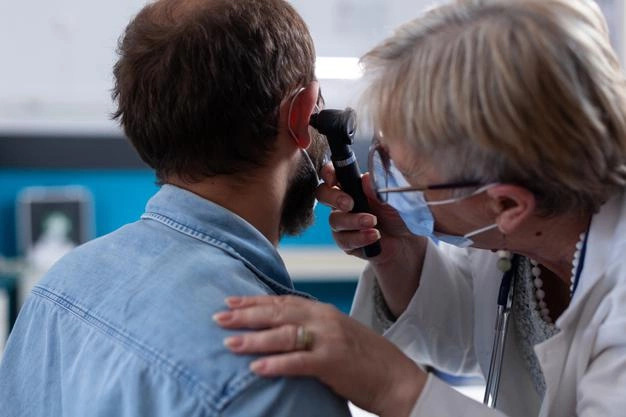Can Hearing Loss be Reversed? Latest Research and Breakthroughs – By Dr. S. R. Agrawal

Introduction:
Hearing loss is a prevalent condition that affects millions of people worldwide, impacting their quality of life and communication abilities. Traditionally considered irreversible, recent advancements in audiology and medical research have sparked hope for the possibility of reversing hearing loss. In this article, Dr. S. R. Agrawal, a renowned expert in audiology, explores the latest research and breakthroughs in the quest to restore hearing.
Understanding Hearing Loss:
Hearing loss can result from various factors, including aging, exposure to loud noises, genetic predispositions, and certain medical conditions. The mechanisms of hearing loss involve damage to the delicate structures of the inner ear, hindering the transmission of sound signals to the brain. Until recently, the prevailing belief was that once these structures were damaged, hearing loss was irreversible.
Stem Cell Therapy:
One of the most promising areas of research in hearing restoration revolves around stem cell therapy. Stem cells have the unique ability to differentiate into various cell types, making them a potential source for regenerating damaged cells in the inner ear. Dr. Agrawal highlights recent studies that have shown encouraging results in animal models, demonstrating the regeneration of hair cells and improved hearing function after stem cell treatment.
Gene Therapy:
Advancements in gene therapy have also contributed to the exploration of potential avenues for reversing hearing loss. Researchers are investigating the use of gene editing techniques to address genetic mutations that may contribute to hearing impairment. While still in the early stages of development, gene therapy holds promise for addressing hereditary forms of hearing loss.
Cochlear Implants and Beyond:
Cochlear implants have been a revolutionary solution for individuals with severe hearing loss, bypassing damaged portions of the ear to directly stimulate the auditory nerve. Dr. Agrawal discusses ongoing research aimed at enhancing cochlear implant technology, making it more effective in restoring natural hearing. Additionally, emerging technologies such as auditory brainstem implants and middle ear implants are being explored as potential alternatives or complementary approaches to cochlear implants.
Neuroplasticity and Rehabilitation:
The concept of neuroplasticity, the brain’s ability to reorganize itself and adapt, is central to recent breakthroughs in hearing loss research. Dr. Agrawal emphasizes the importance of rehabilitation strategies that capitalize on neuroplasticity to improve auditory processing and enhance the brain’s ability to interpret sound signals. Hearing aids equipped with advanced signal processing algorithms and training programs that target auditory skills are becoming integral components of rehabilitation efforts.
Challenges and Future Directions:
While the latest research brings hope for hearing restoration, Dr. S. R. Agrawal acknowledges the challenges and complexities involved in translating these breakthroughs into widely accessible treatments. Issues such as the safety and efficacy of emerging therapies, ethical considerations, and the need for long-term studies pose hurdles that must be addressed before widespread clinical application.
Conclusion:
Dr. S. R. Agrawal’s exploration of the latest research and breakthroughs in hearing loss offers a glimpse into a future where the prospect of reversing hearing impairment is no longer confined to the realm of science fiction. As researchers continue to unravel the intricacies of the auditory system and develop innovative solutions, the potential for restoring hearing function becomes increasingly plausible. While challenges remain, the ongoing dedication to this field instills hope for a world where hearing loss is not an irreversible barrier but a condition that can be effectively treated and even reversed.
For more info. please visit : https://www.ahrihospital.com/



